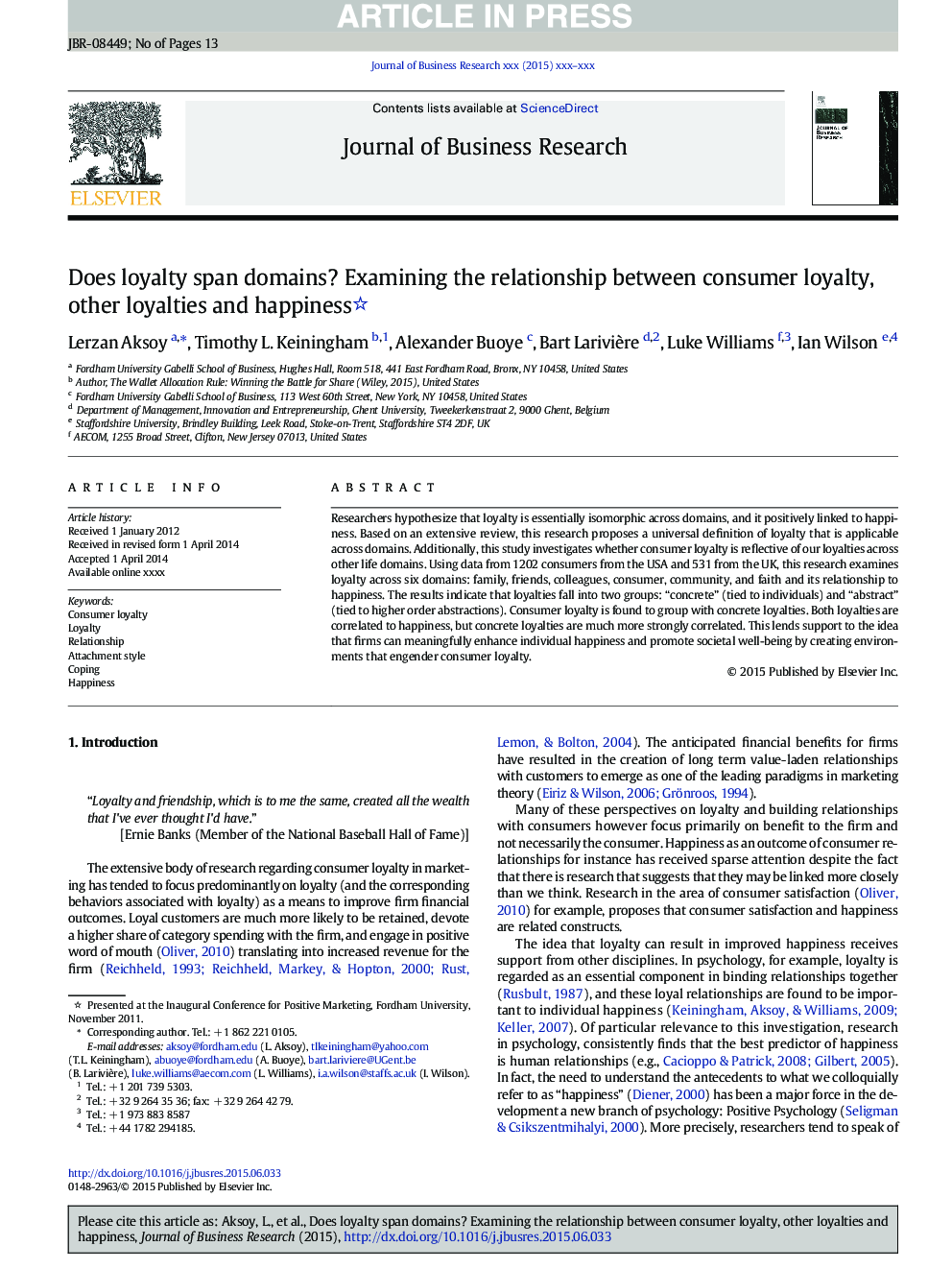| Article ID | Journal | Published Year | Pages | File Type |
|---|---|---|---|---|
| 1017041 | Journal of Business Research | 2015 | 13 Pages |
Abstract
Researchers hypothesize that loyalty is essentially isomorphic across domains, and it positively linked to happiness. Based on an extensive review, this research proposes a universal definition of loyalty that is applicable across domains. Additionally, this study investigates whether consumer loyalty is reflective of our loyalties across other life domains. Using data from 1202 consumers from the USA and 531 from the UK, this research examines loyalty across six domains: family, friends, colleagues, consumer, community, and faith and its relationship to happiness. The results indicate that loyalties fall into two groups: “concrete” (tied to individuals) and “abstract” (tied to higher order abstractions). Consumer loyalty is found to group with concrete loyalties. Both loyalties are correlated to happiness, but concrete loyalties are much more strongly correlated. This lends support to the idea that firms can meaningfully enhance individual happiness and promote societal well-being by creating environments that engender consumer loyalty.
Related Topics
Social Sciences and Humanities
Business, Management and Accounting
Business and International Management
Authors
Lerzan Aksoy, Timothy L. Keiningham, Alexander Buoye, Bart Larivière, Luke Williams, Ian Wilson,
